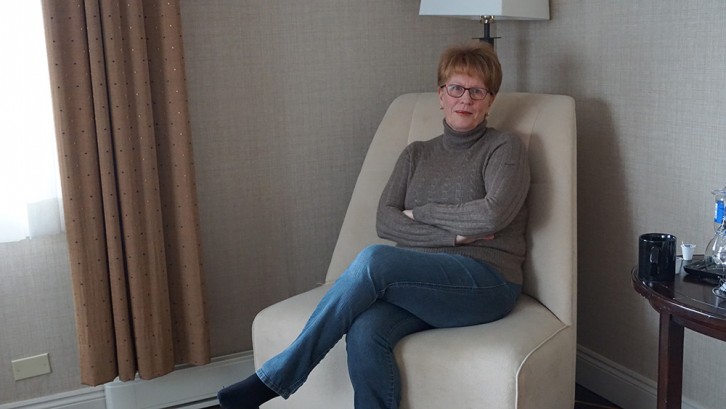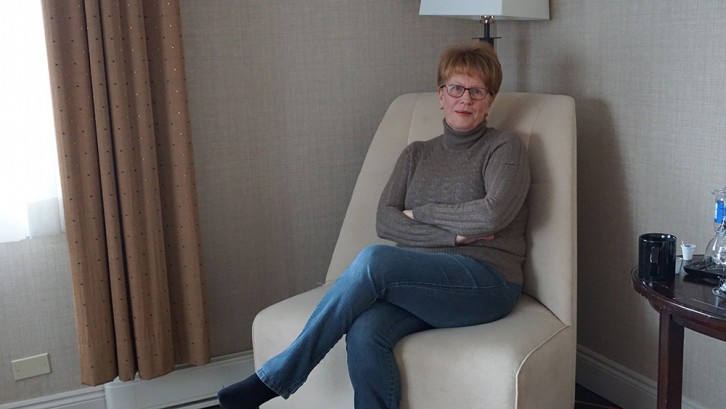Equality
‘Gender intelligence’ introduced to Halifax
Business consultant gets banks thinking about how customer service affects women

caption

caption
Canadian finance consultant Joanne Thomas Yaccato visited Halifax last week to speak at the Centre for Women in Business’s International Women’s DayCanadian finance consultant Joanne Thomas Yaccato is remodeling banks worldwide to cater to female entrepreneurs using a strategy called gender intelligence.
“The nutshell of it, of gender intelligence, is looking at absolutely everything you do that touches the customer, but consciously think about how it affects women,” Yaccato says.
Yaccato visited Halifax last week to give a speech at the Centre for Women in Business’s International Women’s Day Breakfast. Many attendees were entrepreneurs or aspiring entrepreneurs.
“I think I’d like to create a pathway or a niche for something that isn’t necessarily there,” says Allison Lord, a student at the University of King’s College who heard Yaccato speak.
Yaccato says the number of women entrepreneurs is growing.
“We’re seeing this huge increase of women globally flocking to entrepreneurship because the number one reason cited is personal autonomy,” she says. “They get to control their own destiny. Because they can’t anywhere else.”
Yaccato founded the Thomas Yaccato Group 10 years ago in Toronto. Her first customer was the Royal Bank of Canada.
Her company conducts a gender-based analysis of a bank’s business model as well as market research on female entrepreneurs in each country. Then, it provides a new business model that better equips the bank to lend loans to women.
According to a report published by the U.S. Department of Commerce for the White House Council on Women and Girls, female business owners represent only nine per cent of the worldwide bank loan total.
One barrier that businesswomen face is exclusionary collateral policy. Yaccato has worked with banks in Lebanon, Turkey and the Congo where property ownership was necessary collateral for a loan.
“Well women don’t own property. They own next to none of the property that’s available,” Yaccato explains. “If these banks want to seriously meet the needs of women then you’ve got to do something about this collateral policy.”
In Turkey, for example, the law states that property ownership is shared equally between spouses. However, women own less than 25 per cent of all the property in the country.
“The reality is, even though the legislation is in place, it’s just paper. There’s no enforcement capability, and custom, local custom will trump civil law every time,” Yaccato says.
Yaccato helped the banks Garanti in Turkey and Rawbank in the Congo introduce gold as collateral.
“In places like the Congo, places like Turkey, where property ownership is deplorable, many banks are introducing gold as an expectable form of collateral because it taps into the local culture where women collect gold jewelry from birth,” Yaccato says.
In Lebanon, women are not allowed to open up bank accounts for their children because the father is the legal guardian. If the father is not available to sign off when opening an account, only another male from his immediate household can sign off on the account.
“So we introduced the principles of gender intelligence,” Yaccato says.
Yaccato worked with the BLC Bank in Lebanon, which introduced the Mother Fiduciary Account. She says this account is the first of its kind and allows a woman to open up a bank account in the name of her children without needing to disclose it to any member of her immediate family or the children’s father.
These insights about gender intelligence are valuable lessons for Nova Scotia’s women entrepreneurs, the Centre for Women in Business said in a media release.

